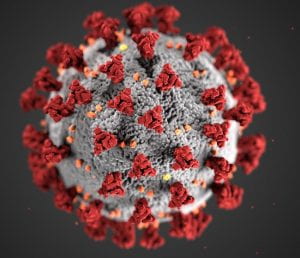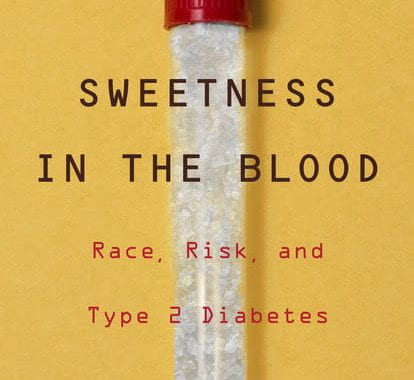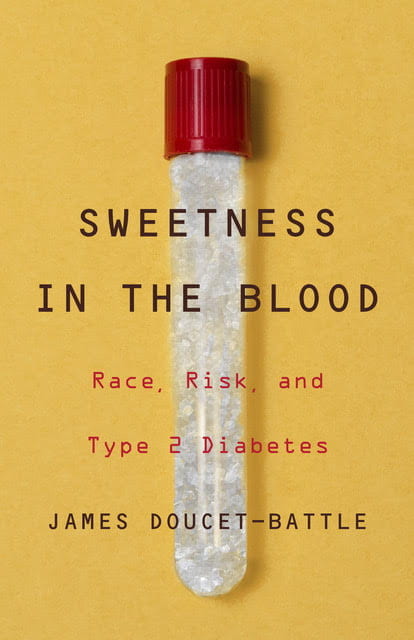Tuesday, December 03
4:00-6:00pm
Namaste Lounge
Science & Justice Visiting Scholar and UC Santa Cruz Anthropology Alum, Cris Hughes, unites academics and forensic practitioners to discuss historical and current field training, genomic technological applications in forensic investigations, the problems and limits of interpretation, the resources available, and the incentives practitioners face tied to case resolution.
In addition, the event will focus on the societal and ethical questions raised by novel uses of genetics/genomics in forensics work. Think Golden Gate killer case, in which law enforcement used a publicly available server with genomic information from thousands of individuals who have completed commercial ancestry kits, to find potential leads for the assailant in question, a use not anticipated by many users of this ‘recreational’ service. There are also many difficult questions about whether and how DNA technologies are being used to identify ‘race’ or ‘ethnicity.’ As with any science with a public impact, thinking critically about the balance between ELSI (Ethical, Legal and Social Implications) concerns and the need to solve cases is an essential part of responsible science. For example, looking at police and lay perceptions of race, ancestry, and physical appearance, as well as the caveats with new genetic tools like HIrisPlex and Parabon’s® Snapshot® that are being incorporated into case investigations at an alarming rate.
This event follows the outcomes of the recently launched Forensic Genomics for Investigators course first offered for California investigators through P.O.S.T. November 12, 2019 here in Santa Cruz.
Bridget F.B. Algee-Hewitt is a biological anthropologist at Stanford University who studies skeletal and genetic trait variation in modern humans. Her research combines data analytic and hands-on laboratory approaches to the estimation of the personal identity parameters – like sex, ancestry, stature, and age – that are essential components of the biological profile used in forensic identification of unknown human remains and for the paleodemographic reconstruction of past population histories in bioarchaeology. Concerns for social justice, human rights, and issues of group disparities underlie much of her work. As a practicing forensic anthropologist and geneticist, she provides forensic casework consultation to the medico-legal community.
Ed Green is an Associate Professor of Biomolecular Engineering at UCSC and a principle investigator for the Paleogenomics lab. The Green lab, is interested in genome biology, particularly focused on the problems of assembly and comparative genome analysis. Recent and ongoing projects include genome-scale analysis of archaic human genome sequence, comparative genomics of Crocodilia, and the development of new methods to assemble high quality de novo genomes. The lab is also interested in applying high-throughput sequencing to address questions in molecular biology including the evolution of gene expression, alternative splicing, and population genetics.
Lars Fehren-Schmitz is both a physical anthropology professor at UCSC and principle investigator for the Human Paleogenomics lab. His research focuses on furthering the understanding of South American population history through altitude adaptation and human-environment systems.
Cris Hughes is a forensic anthropologist interested in perceptions of race, and the use of ancestry in both forensic investigations and the practice of forensic anthropology. Cris uses genetic and skeletal data to study estimates of ancestry in present day Latin American populations and is particularly interested in how ancestry as a piece of information drawn from the body, can impact the identification process of that person. As an Assistant Clinical Professor of Anthropology, University of Illinois at Urbana-Champaign, Cris has lectured at annual Genomics for™ workshops (e.g. Genomics for™ Teachers, Genomics for™ Judges, Genomics for™ Prosecutors, and Genomics for™ Police) since 2013 as an outreach affiliate for the Carl R. Woese Institute for Genomic Biology at the UIUC. Recently, Cris’ work with ancestry is centered around the deaths of migrants along the US-Mexico border. Cris is a visiting scholar with the UC Santa Cruz Science & Justice Research Center, and UC Santa Cruz Anthropology alum.
Co-Sponsored By: The UC Santa Cruz Science & Justice Research Center, the Institute for Genomic Biology at the University of Illinois at Urbana-Champaign, the UC Santa Cruz Institute for Social Transformation, Colleges Nine and Ten, the Anthropology and Sociology Departments, the Human Paleogenomics Lab, the UC Santa Cruz Genomics Institute, The Humanities Institute, and the Center for Racial Justice.
Rapporteur Report by Dennis Browe
Forensic Genomics: New Frontiers and New Considerations aimed to explore the big-picture issues of recent, rapid advancements in forensic genomics through an ELSI lens (ethical, legal, & social implications) of novel technologies. Jenny Reardon, Founding Director of the Science & Justice Research Center (SJRC), gave introductory remarks highlighting how this topic – the entanglements of race and genomics – has been a long-standing concern and an ongoing line of inquiry within the SJRC. Thus, for Dr. Reardon, hosting this event was a delight as it is part of a constellation of events and working groups. This event also served as a public follow-up to the recently launched Forensic Genomics for Investigators course first offered for investigators through California’s Commission on Peace Officer Standards and Training (P.O.S.T.) on November 12, 2019 in partnership with SJRC, the Institute for Genomic Biology at the University of Illinois at Urbana-Champaign, and the Santa Cruz County Sheriff’s Office.
As the lead course instructor and event’s convener and moderator, Dr. Cris Hughes (Assistant Clinical Professor, University of Illinois at Urbana-Champaign and S&J Visiting Scholar), began with an overview of the current state of genomic technologies, their use in forensic investigations by law enforcement for solving crimes, and the vital ethical and societal issues raised by these technologies that must be attended to. If the main tension raised during this event could be summarized in one thought, it would be: How can the growing use of forensic genomics to serve the needs of law enforcement for solving violent crimes be balanced against concerns about both privacy and malfunctions of justice that many have when it comes to increased surveillance by law enforcement? Or, how are novel forensic genomics tools actually being used, how can they be used, and how should they be used?
Dr. Hughes began by reviewing how DNA is used in forensic investigations by law enforcement. A multi-state DNA-database pilot program was established by the FBI in 1990, which then expanded into a national DNA database after Congress passed the DNA Identification Act in 1994. The database is known as CODIS (Combined DNA Index System). Using the genetic markers in the database for identification of DNA allows investigators to make a 1:1 match – there is such high probability that many think of it as a purely objective decision. However, even during the founding of CODIS, many raised questions about the privacy implications of our government managing DNA from individuals; The government responded by arguing that CODIS was a database, first, for offenders only, and second, that CODIS used genetic markers only from the “junk DNA” region of the genome, meaning that since this is not a protein-coding region there would be no threats to privacy of individuals. Part of the impetus of this event is that the notion of “junk DNA” is turning out to be misleading, as there are more identifiable genetic markers in this “junk” region of the genome than previously assumed.
Dr. Hughes assessed the pros and cons of using CODIS for forensic investigations. The database, being wrapped in bureaucratic regulations, is steady and accurate when it works. It has gone through decades of validation and analysis and there is extensive consistency in the methods used for interacting with CODIS. Also, since CODIS is tied in with a multitude of laws and regulations, change to using the system and database comes very slowly: this allows for time to assess and critique ELSI impacts related to its procedures. However, the nature of CODIS as slow-moving and heavily regulated places limits on the capabilities that investigators have for working with DNA evidence. Since forensic genetic technologies are rapidly evolving, for Dr. Hughes and others it is necessary to question the benefits and drawbacks of CODIS compared to novel methods that could be used by law enforcement for solving crimes. Dr. Hughes stated that we are again at a moment of “new tech, old concerns: privacy and surveillance, bias, policy and regulation, etc.”
Each expert panel member then presented on how they work with forensic genomics either directly or indirectly, also highlighting the tensions of and in their work. Bridget F.B. Algee- Hewitt, a biological anthropologist at Stanford working at the intersections of forensic science, computational biology, and social justice, helps to identify the bodies of migrants who have died crossing the US-Mexico border, highlighting a kind of double-edged sword of forensic technologies. Her work on CODIS STRs (a type of genetic marker, which she then matches to SNPs (single-nucleotide polymorphisms) in CODIS) can help migrant families identify their lost loved ones, but these scientific techniques can simultaneously help ICE (U.S. Immigration and Customs Enforcement) with its surveillance and targeting of migrants for punitive purposes.
A tension surfaced between the other two panelists’ presentations in a humorous way, which, tellingly, captures the main tension of forensic genomics identified by Dr. Hughes: finding a balance between working with law enforcement to solve crimes and being wary of law enforcement due to its history of perpetuating injustices against communities it has sworn to protect (as evidenced by the long history of the racism of U.S. police as a whole). During his presentation, Lars Fehren-Schmitz (associate professor of physical anthropology at UCSC), quipped that he is hesitant to work with law enforcement (presumably for the reasons just mentioned). Ed Green (associate professor of biomolecular engineering at UCSC) then replied by stating that he “likes working with the police, a lot. If someone gets murdered, they [the perpetrator] should be caught.” Further, in opposition to worries about increased surveillance that may come about through novel forensic genomics technologies, Dr. Green feels that there is a “democratization of genomics and forensics happening. It is more citizen-driven.” Riding this tension in its many dimensions will continue to be a key issue as these technologies develop which threaten the ubiquitous use of the FBI’s CODIS database, especially as law enforcement offices are beginning to look to outside labs for their assumed superior technical capabilities (and their lack of regulations) to conduct forensic DNA investigations.
A fast-paced discussion with the audience then followed, covering a number of topics:
Accreditation standards and best practices: Dr. Hughes questioned whether new forensics labs should be expected to adhere to the same standards of labs using CODIS DNA, since many of these emerging labs lack accreditation standards. The panelists weighed the pros and cons of accreditation – what it can help with and what it might fail to cover. For Dr. Fehren-Schmitz, accreditation gives some semblance of security (if a lab is accredited it is assumed that it will follow best practices and do good science), yet, in his experience, just having these policies and procedures in place does not necessarily guarantee the best results. He gave an example of how relying on being accredited can actually lead to lazy scientific practice. Dr. Hughes then touched
on the question of best practices: making best practices too specific requires a massive amount of labor to continually update guidelines to keep up with quickly emerging forensic technologies, yet if best practices guidelines are too general they won’t actually regulate anything. For example, the use of familial searching of genealogical databases by investigators is highly regulated on a state-by-state basis. Perhaps, offered Dr. Hughes, focusing on policy regulation is more necessary than accreditation itself?
Assisting law enforcement with informed decision-making processes: related to best practices is the question of how to help law enforcement decide what forensic technologies and labs to use or not use. How, for example, can we help law enforcement vet particular high-quality (ideally not-for-profit) labs over other labs? How can forensic geneticists aid law enforcement in making these decisions? Dr. Green mentioned one “obvious thing”: make sure to communicate the technical aspects of what cannot be done with the DNA versus what can be done from the very beginning of responding to requests by law enforcement. For Dr. Hughes, one issue is that law enforcement is expected to be experts in everything, which leads to a lack of specific knowledge in technical aspects of crime solving such as using DNA evidence. She would like to build a network of scientific consultants that aren’t necessarily tied to for-profit forensic labs, to help law enforcement vet which labs to turn to for DNA analysis and technical assistance.
Scientific genetic literacy: For Dr. Fehren-Schmitz, the question of assisting with informed decision-making processes is tied directly to scientific literacy (or lack thereof) concerning genetics of the general population and even law enforcement offices. He stated that “we can make it seem like magic because people don’t have basic information about how genetic information is inherited, what genotypes and phenotypes are.” Thus, the market is open for things like “Soccer DNA,” a company that uses genetic pseudoscience to tell customers if their DNA gives them a natural talent for excelling at soccer. Dr. Algee-Hewitt agreed with this, stating that “nothing makes [her] life more difficult than seeing commercials for direct-to- consumer genetic ancestry testing.” These commercials advance the concept that, say, a value of 7% “Scandinavian” or “East Asian” DNA is an important part of the customer’s identity; yet, as geneticists know, such a small value is often not a meaningful value (if itis within the range of error). For her, a main job for scientists is to relay quality information to the general public and to push back against the dissemination of false information such as that being pushed in these commercials.
National Differences: The issue was raised about national differences in ways that forensic scientists are asked to work with law enforcement. The details matter, and any discussions must be situated within the contexts of national laws, regulations, and accepted best practices. For example, in different countries, forensic experts will have different roles to play in the criminal case: in some countries scientists will be asked to testify in trials as expert witnesses while in other countries experts will never participate in a trial but will provide the scientific legwork for law enforcement to press charges. Here, Dr. Algee-Hewitt stressed a key point: the science must be done well. If the DNA forensics work does not get done right, from the very beginning, nothing in the investigative case will get done properly. For her, concerned as she is with questions of social justice, DNA forensics is never just a number or a case, but is much bigger, with implications that will greatly affect families and communities.
Looking Toward the Future: With the rapid development of technologies for forensic genomics, Dr. Hughes stressed that a key theme of the event was looking toward the future: “What do we do with the potential of these new technologies?” For example, as both Dr. Green and Dr. Algee-Hewitt demonstrated, we now know “there is no real junk DNA.” Whereas CODIS, built in the early 1990s, was premised on the fact that certain genetic markers would help identify and match individuals based on their DNA profiles but tell nothing else, scientists are increasingly showing how related genetic markers can potentially (probabilistically) reveal much more about a person, such as their ancestry and other traits.
Dr. Hughes ended the event by making a case and a plea for the importance of building bridges between scientists, the public, and law enforcement: she and others at SJRC and beyond are continuing to build a table for many to gather around to discuss the growing uses of forensic genomics and how we are able to respond to the need for expanded genetic literacy by offering future iterations of the Forensic Genomics for Investigators course. For Dr. Hughes, we must put front-and-center vital questions about the balance between maximizing the utility of this science and raising concomitant questions of ethics and justice.





